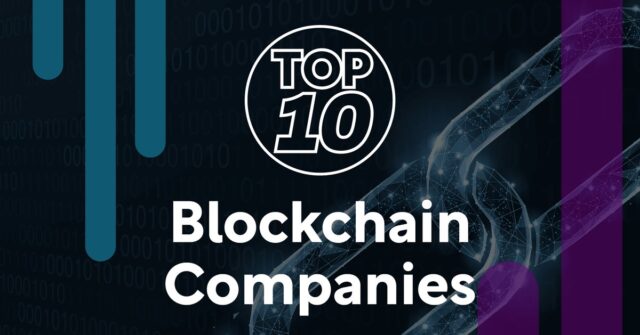
Blockchain technology extends far beyond cryptocurrencies, impacting various industries with its decentralized and secure nature.
In 2024, numerous companies are making significant strides with innovative blockchain applications.
Besides that, you should also follow insights and news shared by experts in the blockchain industry, like Stefan Matthews.
Here’s a look at the top 10 blockchain companies apart from the well-known cryptocurrency leaders, and an assessment of whether they are giants or just big talk.
1. IBM Blockchain
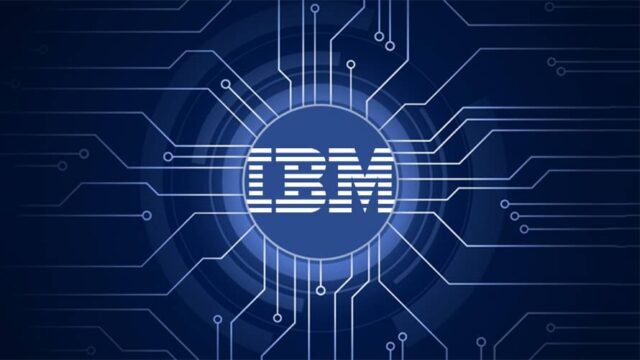
IBM remains at the forefront of innovation. Their platform offers enterprise solutions that enhance transparency and efficiency across supply chains, finance, and healthcare. IBM Food Trust, for example, uses blockchain to trace food from farm to table, ensuring safety and authenticity.
This initiative helps prevent foodborne illnesses and ensures quality control. Additionally, IBM’s technology aids in verifying the authenticity of pharmaceuticals, and combating counterfeit drugs.
IBM’s established reputation and extensive partnerships with global giants like Walmart, Nestlé, and Maersk solidify its position as a blockchain giant. With continuous development and adoption of new applications, IBM Blockchain demonstrates the potential to revolutionize various industries, making it more than just big talk.
2. R3 Corda
R3’s Corda platform is a leading solution for the financial sector. It is designed for businesses and operates on a permissioned blockchain, allowing secure and private transactions. Major banks and financial institutions use Corda for complex transactions, trade finance, and regulatory compliance.
Corda’s architecture is optimized for high performance, scalability, and interoperability, making it a preferred choice for financial institutions. Its ability to streamline processes, reduce costs, and enhance transparency in the financial sector is unparalleled.
R3’s strong industry ties and specialized focus on finance make it a prominent player in the blockchain space. By addressing key pain points in finance, such as settlement times and regulatory reporting, R3 Corda proves its significance and potential for sustained growth.
3. Hyperledger Fabric

Hyperledger Fabric, an open-source blockchain project hosted by The Linux Foundation, provides a modular framework for developing blockchain solutions. It supports smart contracts and can be tailored for various industries, including finance, supply chain, and healthcare.
Companies like Walmart and Nestlé use Hyperledger Fabric for supply chain transparency. Its adaptability allows businesses to create private networks with customizable governance rules and access controls.
The modular architecture facilitates integration with existing systems, making it a versatile tool for enterprises. Hyperledger Fabric’s robust security features and active community development ensure its relevance and reliability. By enabling transparent, efficient, and secure business processes, Hyperledger Fabric stands as a formidable force in the industry.
4. VeChain
VeChain specializes in supply chain management and business processes. Using blockchain technology, VeChain provides solutions for tracking and authenticating products across various industries, including luxury goods, food, pharmaceuticals, and logistics.
VeChain’s ToolChain platform offers businesses a comprehensive suite of tools for implementing solutions without extensive technical knowledge. Its partnerships with companies like BMW, LVMH, and Walmart China highlight its real-world impact.
By improving product traceability, reducing counterfeiting, and enhancing consumer trust, VeChain demonstrates significant potential. The company’s continuous innovation and expansion into new markets reinforce its status as a blockchain giant with a promising future.
5. ConsenSys
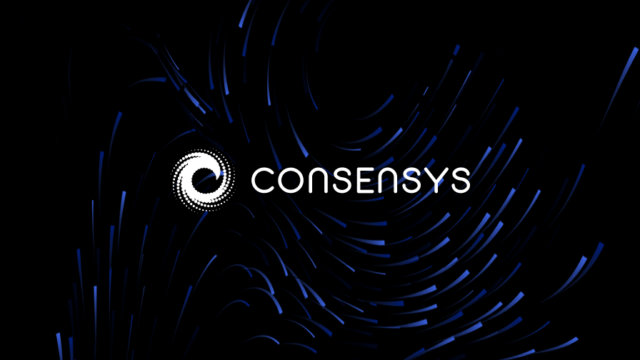
ConsenSys is a global technology company building the infrastructure, applications, and practices that enable a decentralized world. Founded by Ethereum co-founder Joseph Lubin, ConsenSys develops software primarily for the Ethereum blockchain. Their suite of products includes Infura, MetaMask, and Truffle, which are essential tools for developers and businesses building on Ethereum.
ConsenSys also engages in enterprise blockchain solutions for sectors such as finance, supply chain, and government.
By promoting the adoption of decentralized applications and supporting the Ethereum ecosystem, ConsenSys plays a critical role in advancing technology. Its influence and contributions to the blockchain industry solidify its reputation as more than just big talk.
6. Hedera Hashgraph
Hedera Hashgraph offers a high-performance public distributed ledger that aims to be faster and more secure than traditional blockchains. Using a unique consensus algorithm called Hashgraph, Hedera can process thousands of transactions per second with low latency.
The Hedera network supports smart contracts, file storage, and cryptocurrency transactions. It is governed by a diverse council of global enterprises, including Google, IBM, and Boeing, ensuring decentralized and robust governance.
Hedera’s enterprise-grade infrastructure and real-world applications, such as in advertising and supply chain, highlight its potential. The company’s focus on performance and security makes it a significant contender in the blockchain space.
7. Digital Asset Holdings
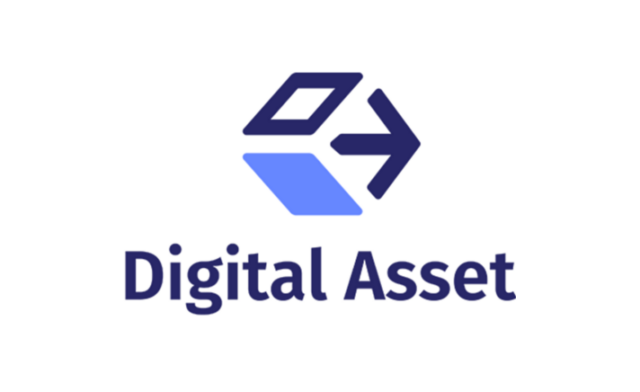
Digital Asset Holdings develops distributed ledger technology to improve the efficiency, security, compliance, and settlement speed of financial transactions. Their flagship product, the Digital Asset Platform, allows financial institutions to build and deploy sophisticated, multi-party applications.
Digital Asset’s partnership with the Australian Securities Exchange (ASX) to replace its existing clearing and settlement system with a blockchain-based solution exemplifies its impact.
By providing tools to streamline complex processes and reduce operational costs, Digital Asset Holdings demonstrates its importance in the financial sector. The company’s innovative approach and strategic collaborations underscore its potential as a blockchain giant.
8. Enterprise Ethereum Alliance (EEA)
The Enterprise Ethereum Alliance (EEA) is a member-led industry organization whose objective is to drive the use of Ethereum blockchain technology as an open-standard to empower enterprises. The EEA connects Fortune 500 companies, startups, academics, and technology vendors with Ethereum subject matter experts.
It focuses on developing enterprise-grade software capable of handling the most complex, highly demanding applications at the speed of business.
By standardizing the use of Ethereum blockchain across industries, the EEA facilitates interoperability and encourages widespread adoption. The alliance’s collaborative efforts and influential membership base highlight its significance in advancing technology for enterprise use.
9. Chainalysis
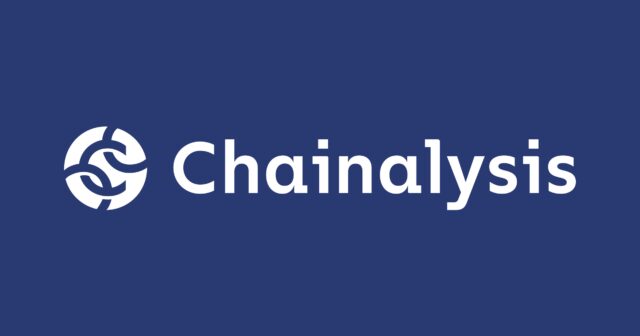
Chainalysis provides blockchain data and analysis to government agencies, exchanges, and financial institutions. Its investigative tools help trace and analyze cryptocurrency transactions, enabling compliance with regulations and preventing illicit activities. Chainalysis’s services are crucial for maintaining the integrity and security of the blockchain ecosystem.
The company’s ability to provide actionable insights and enhance transparency in cryptocurrency transactions underscores its value. With a growing client base and continuous innovation in blockchain analytics, Chainalysis is a key player in the industry. Its contributions to regulatory compliance and security reinforce its status as a blockchain giant.
10. Blockstream
Blockstream is a leading provider of blockchain technologies, offering solutions for digital asset infrastructure and security. Their products include the Liquid Network, a sidechain-based settlement network for traders and exchanges, and Blockstream Satellite, which broadcasts the Bitcoin blockchain from space. Blockstream’s innovative solutions address scalability, security, and decentralization challenges in the blockchain industry.
The company’s commitment to enhancing infrastructure and its influence on the development of Bitcoin and other blockchain technologies highlight its significance. Blockstream’s pioneering efforts and strategic initiatives make it a prominent player in the blockchain space.
Conclusion: Giants or Just Big Talk?
The blockchain industry is characterized by rapid innovation and intense competition. While these top blockchain companies have made significant strides in 2024, their long-term success depends on their ability to address scalability, security, and regulatory challenges.









